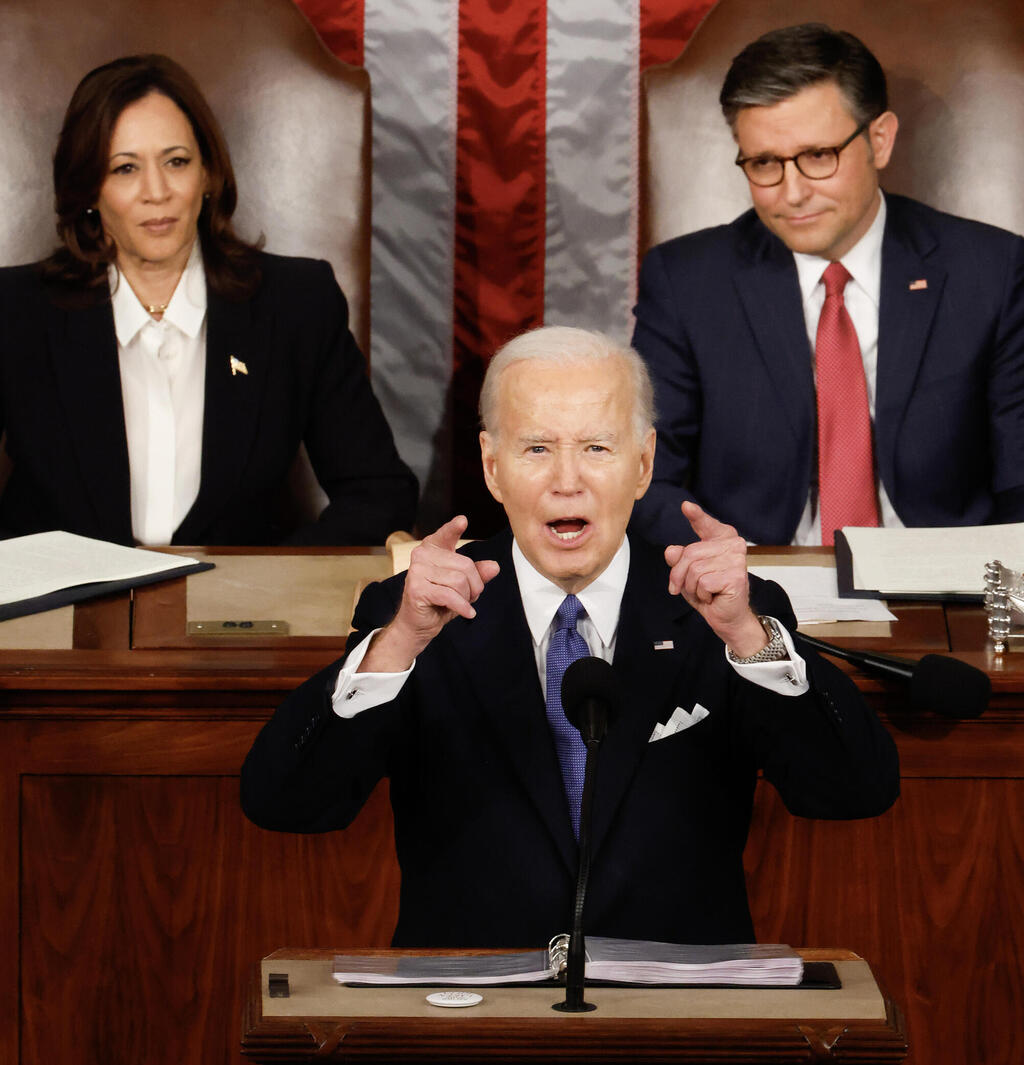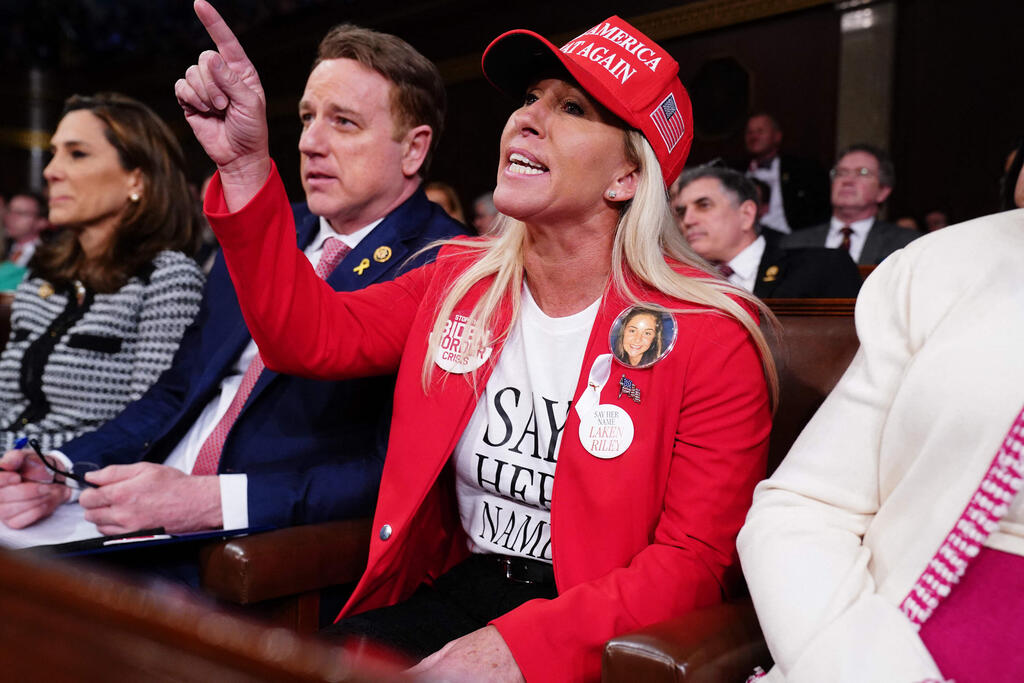Even in his younger years, Joe Biden's political rivals set a very low bar for him. His lifelong battle with a stutter, combined with a propensity for verbal gaffes, constructed a tough reputation to dismantle, yet in hindsight, it served Biden well throughout his career. Time and again, he effortlessly cleared the low hurdles set before him, ultimately leading him to the White House.
US President Joe Biden gives his State of the Union address before Congress
(Photo: Reuters)
But even by that standard, the bar set for Biden ahead of his State of the Union address Thursday night was arguably the lowest ever.
Months of a stubborn narrative suggesting he is too old to run for office again—a narrative built on his slow walk, weakened voice, sparse media interviews and a confusion that was always present but now seemed particularly severe—led him to Capitol Hill on Thursday night with expectations barely exceeding this: do not err, do not get confused, do not falter, make it home safely.
And as he has done time and again throughout his career, Biden effortlessly vaulted over this hurdle. He was quick, sharp and assertive, sometimes perhaps overly so, demonstrating his acute awareness of the evening's critical importance to his tenure.
3 View gallery


US President Joe Biden gives his State of the Union address before Congress
(Photo: Gettyimages)
The State of the Union address doesn't usually live up to the hype. It often resembles a grocery list, where the president recounts accomplishments and outlines future plans, praises his spouse and concludes with a crescendo declaring "the state of our union is strong."
However, Biden's latest address for this term carried a different aura. It wasn't just politically significant for Biden—it tackled issues of genuine urgency. Thus, Biden and his speechwriters decided to blend internal political drama and global crises into a speech that sounded more like what he might deliver at the Democratic National Convention in the summer, rather than a conventional State of the Union address.
Republicans jeered repeatedly, and Biden seemed to relish the belligerence, even as they withheld applause for almost everything he said, including statements as uncontroversial as "all our children need to drink clean water" or "every third-grader should be able to read."
More stories:
3 View gallery


Republican Congresswoman Marjorie Taylor Green interrupts Biden's speech
(Photo: AFP)
In a surprisingly aggressive tone, Biden opened his speech focusing on Ukraine and NATO, signaling from the outset that this evening would differ from what Americans had witnessed in recent months.
He then proceeded through the familiar grocery list of topics, leaving the most politically volatile issue for him—Israel and Gaza—almost for last.
He reminded everyone of his lifelong support for Israel, but the subtext of his cautious words signaled to Israel that March 2024 is not October 2023, and his patience is wearing thin.
Significant actions against Israel by Biden seem unlikely, partly because his gut, from which he draws many of his decisions, simply won't allow it.
3 View gallery


Progressive Democratic Congresswomen Rashida Tlaib and Corey Bush wave signs reading 'stop sending bombs' during Biden's speech
(Photo: ANDREW CABALLERO-REYNOLDS / AFP)
Yet, as he enters the critical mid-straight of a very important election year, he cannot afford to alienate voters who form the core base of the Democratic Party. Therefore, he is walking a tightrope, hoping that by November, the war will be in the past.
Biden lingered in the halls of Congress, where he spent the bulk of his career, long after his speech had concluded. There wasn't a single staffer or cleaner whose hand he didn't shake, hearing time and again how outstanding his performance had been.
Historically, State of the Union addresses don't really change the game; they're quickly forgotten, and Biden is well aware of this. However, if the objective was at least to reassure the wavering Democrats, he likely achieved it.
In the two hours from the start of his address at 9 pm to 11 pm, his campaign received the most donations since last April, and talks of finding a successor will cease. At 81, Biden proves that he can still effortlessly leap over a low bar.




